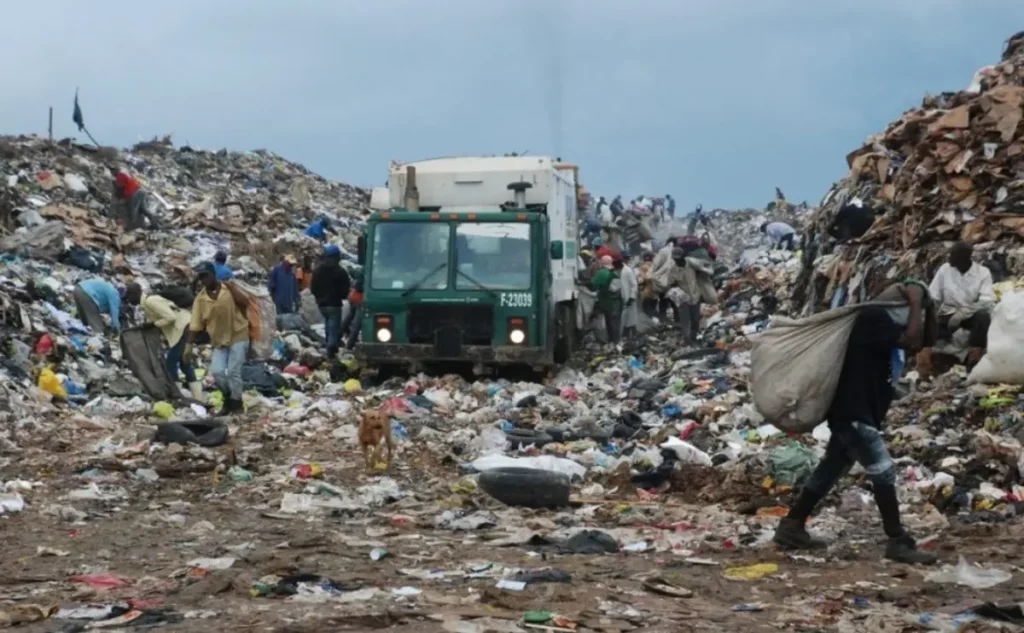“School closures, related lockdowns, and disruptions in services during the course of the pandemic have been a threat that could destroy decades of progress in generating human capital,” says a World Bank report that studied cognitive development and the lifetime earnings of children and young people who have lived through this period starting in March 2020
The pandemic affected cognitive development and lifetime earnings of children and youth; this endangers the well-being of generations and the growth of economies.
The Covid-19 pandemic caused a massive collapse in human capital at key moments in the life cycle, negatively altering the course of development for millions of children and youth in low- and middle-income countries, according to the first data analysis. world data on people who were under 25 years of age at the start of the pandemic.
The World Bank report Collapse and recovery: how covid-19 eroded human capital and what to do about itanalyzes global data on the impacts of the pandemic on young people at key stages of development: early childhood (0-5 years), school-age (6-14 years) and youth (15-24 years) .
The document concludes that today’s students could lose up to 10% of their future income due to the educational crises caused by covid-19. And cognitive deficits in young children today could translate into a 25% decline in earnings as adults.
Venezuelan teachers already they had detected that during the pandemic a significant number of students did not develop the necessary competencies to advance to the next level within the school system and another group simply forgot what they learned.
After two virtual academic periods and an irregular face-to-face return to school life in the period that ended in July 2022, teachers and specialists found in Venezuela a worrying number of students —both in public and private institutions— who did not manage to complete the minimum skills necessary to pass a grade, year or leveland in other cases they simply forgot what they had learned.
Teachers from public and private schools detected among the more recurrent and deepened deficiencies in the pandemic syllabic reading in children of 4th, 5th and 6th grade of primary schooldespite the fact that reading comprehension is crucial for the rest of learning.
The writing was very unstructured (uppercase between lowercase letters), with bulkiness (writing pasted), letter omissions, few notions of spelling rules and not knowing how to identify the parts of a sentence, which are basic knowledge required from the first grades.
*Read also: Distance education leaves behind a generation of excluded schoolchildren
decades back
Human capital – the knowledge, skills and health that people accumulate throughout their lives – is key to unlocking the potential of children and helping countries achieve a resilient recovery and strong future growth. However, the pandemic caused the closure of schools and places of employment and interrupted other specific services that protect and promote human capital, such as maternal and child health care and job training, says the executive Summary of the World Bank report.
“School closures, related lockdowns, and service disruptions during the course of the pandemic have been a threat that could destroy decades of progress in building human capital. Specific policies to reverse losses in learning, health and basic skills are essential to avoid jeopardizing the development of several generations,” said David Malpass, President of the World Bank Group.
“Countries must chart a new course to increase investments in human capital to help citizens become more resilient to the overlapping threats of health crises, conflict, slow growth and climate change, and to build strong foundations.” for faster and more inclusive growth.”
Due to the pandemic, preschool children in several countries have lost more than 34% of early language and literacy learning and more than 29% of mathematics learning, compared to pre-pandemic cohorts.
In many countries, even after schools reopened, preschool enrollment had not yet recovered by the end of 2021; in several cases, it remained more than 10 percentage points below normal. Children have also suffered from increased food insecurity during the pandemic.
*Read also: The education of 90% of children in the world was impacted by covid-19 and tax cuts
For school-age children, on average, for every 30 days of school closures, students lost about 32 days of learning. This is because lockdowns and ineffective distance learning measures meant that students did not learn and even forgot the knowledge they had already acquired. In low- and middle-income countries, nearly 1 billion children lost at least a full year of face-to-face education due to school closures, and more than 700 million lost a year and a half. As a result, learning poverty—already 57% before the pandemic—has further increased in these countries, with an estimated 70% of 10-year-olds unable to understand a basic text.
Covid-19 hit youth employment hard. At the end of 2021, 40 million people who would have had a job under normal conditions (without the pandemic) did not, exacerbating youth unemployment trends. Youth earnings contracted 15% in 2020 and 12% in 2021. New entrants with less education will have 13% lower earnings during their first 10 years in the labor market. Data from Brazil, Ethiopia, Mexico, Pakistan, South Africa and Vietnam indicated that 25% of all youth did not receive education, employment or training in 2021.
The opportunity to address setbacks in human capital accumulation is small, as gaps recorded early in the life cycle tend to widen over time. Unless urgent action is taken, the pandemic also threatens to deepen poverty and inequality. This report highlights evidence-based policy options to recover from current losses and prevent future losses. An approach is also provided to help countries prioritize among different post-crisis recovery policy options.
In the short term, in the case of young children, countries should support specific vaccination campaigns and nutritional supplements; increase access to preschool education, and expand the coverage of cash transfers for vulnerable families. As for school-age children, governments must keep schools open and increase instruction time; assess learning and adjust instruction to student levels; and simplify the curriculum to focus on foundational knowledge. For youth, targeted support for tailored training, job placement, entrepreneurship programs, and new workforce-oriented initiatives are crucial.
In the long term, countries need to build agile, resilient and adaptive health, education and social protection systems that are better prepared for and can respond to current and future crises.
«People who are less than 25 years old today, that is, those most affected by the erosion of human capital, will make up more than 90% of the labor force in full productive age in 2050»said Norbert Schady, the World Bank’s chief human development economist and one of the lead authors of the report.
“Reversing the impact of the pandemic on them and investing in their future should be one of the main priorities of governments. Otherwise, these cohorts will not just represent one lost generation, but multiple lost generations,” Schady stressed.
World Bank financing to respond to the pandemic reached $72.8 billion between April 2020 and June 2022.
Post Views: 140

















